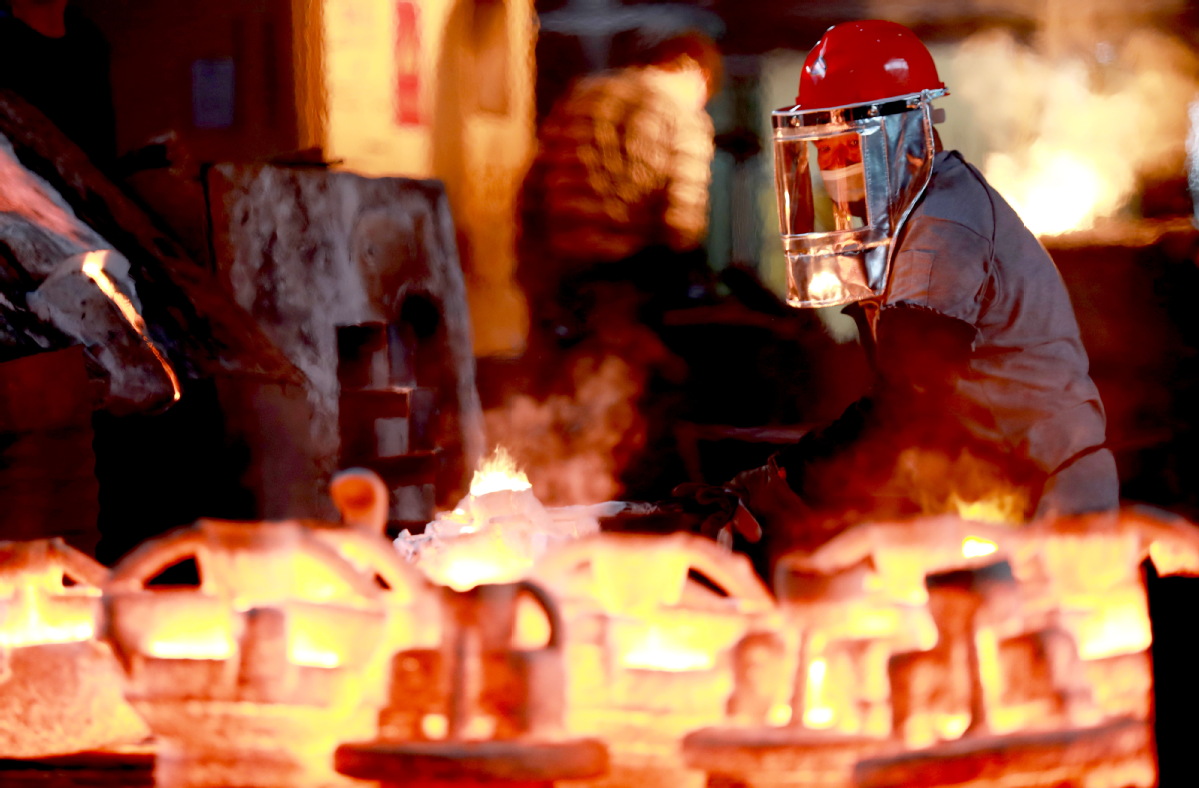Helping companies tackle skyrocketing costs


Surge in prices of commodities triggers a range of steps to stabilize China's economy
Possible inflation fueled by surging prices of commodities like iron, copper and oil-that's the prime-time market buzz around the world these days; and investors, it seems, can't overanalyze the goings-on in major economies such as the United States and China against a global backdrop of geopolitical tensions and waves of havoc wreaked by the obstinate COVID-19 pandemic.
The Bloomberg Commodity Index, composed of more than 20 exchange-traded contracts on physical commodities, has gone up by over half since its trough in March 2020 and stood at more than 92 points as of mid-May, the highest level since the middle of 2015.
Tony Sycamore, Asia-Pacific analyst with City Index, a United Kingdom-based trading service provider and part of Gain Capital, said underpinning the rally are infrastructure stimulus, reviving economic activities, a weaker US dollar, and seasonal factors.
These, together with supply bottlenecks, will keep international commodity prices at relatively high levels in the coming months, he said.
Iris Pang, chief China economist at Dutch bank ING, said some of the reasons behind the surge in commodity prices have been expectations over the US stimulus of infrastructure construction, which could be premature and finally lead to a retreat in commodity prices.
Any news that signals looming higher inflation due to price spikes in commodities can spook investors and trigger cascading effects across markets and economies, experts said. For example, it could prompt central banks to tighten liquidity that will cause a slump in asset prices, squeeze company profits, increase family burdens and threaten incipient global recovery.
So, what are the chances of fears, worries and other assorted concerns materializing? Might it be a wrong question to ask?
Meaning, is the right question to ask this: can the world ride out all the inflationary pressure brought by a rebounding global demand, a COVID-19-damaged global supply chain, and a global market landscape flooded with liquidity pumped during the pandemic?
Whatever the question, it is imperative that investors should stay sensible and keep a cool head; and, they should take a second look at things taken for granted or as a given, said experts.
Higher-level commodity prices may remain supported for some months as speculation continues about shortages relative to demand, but the price surge will be transient overall, they said.
Recovery in global demand will still be complicated by uncertainties surrounding the COVID-19 pandemic and infrastructure stimulus programs, while disruptions to supply chains will gradually fade away, they said.
In China, inflation will remain mild this year, given the country's prudent monetary policy, falling pork prices, and a slow recovery in domestic demand, they added.
Commodities like iron, copper and oil have had a remarkable rally in the international markets, rebounding from the COVID-19-dug bottom reached early last year.
The rise in commodity prices heated up in April, giving the Bloomberg Commodity Index a more than 8 percent monthly gain, according to Bloomberg.
The recovery in the global supply of commodities has faced multiple obstacles such as impacts of COVID-19 and bad weather, which have disrupted commodity production and shipments.
Vale, one of the world's largest iron ore producer based in Brazil, for instance, has reported a nearly one-fifth decline in iron ore output in the first quarter compared with the prior one. The drop was due to usual seasonal rains.
Vale also reported a decline in copper production due to maintenance that was slowed by COVID-19-related restrictions, according to industry news outlet mining.com.
"However, inflation caused by supply bottlenecks is transitory," Sycamore of City Index said.




































